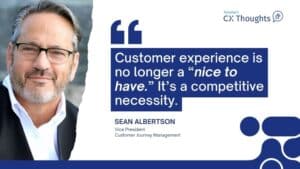
It’s great to care about what people think about a company when they have one foot out the door. Never mind that we should care about what they’re thinking while they have both feet on the floor; that’s another story entirely. Exit interviews and exit surveys are a good idea. They really are. But most of the time, they amount to misplaced efforts, albeit well-intentioned. If we want feedback – the hard truths – then we have to go after it the right way.
There’s so much emotion that comes with a decision to leave an employer. For most, it’s not one taken lightly. We’re talking about livelihood here. Bridges burn. And they burn fast. No one wants to waste mental bandwidth throwing people, teams, or organizations “under the bus” when there’s no longer any benefit in doing so. Even if they want to. Even if they really, really really want to.
Knowing what your employees think when they are about to leave is important for a company. Exit interviews are a great idea, but they must be done correctly.
If you want honest employee feedback, even if it’s hard to hear, you can pursue it. There are so many emotions behind the decision to leave a job. For most, it is not something they take lightly. Exit interviews don’t have to be all about the wrong things, but any type of feedback will certainly help us learn more about what we need to improve.
Let’s figure out how to ask the questions to get data we can act on. Let’s stop worrying about what we will hear and go after that information that will make us grow as an organization.
What is an exit interview?
An exit interview is the last formal interview between the company and the worker, in which the worker can detail the reasons for their departure. Using the data provided by the departing employee can help improve the social climate or performance and represents an opportunity to position yourself in the labor market.
There are causes of exit in which the company cannot compete or change its policy. On the other hand, if the reasons for abandonment are related to elements such as low salary, inadequate work hours, or bad workplace culture, you can work on these points to be competitive as a company.
The feedback will also help the employer improve its retention policy. Therefore, a well-conducted exit interview will provide both parties with valuable and often very insightful information.
Also read: Stakeholder Interviews: A Guide to Effective Engagement
Importance of exit interviews
These are some of the reasons why it is important to conduct exit interviews with employees and help your organization create a positive work environment:
- Employees who leave tend to be more communicative than those who remain in their jobs.
- The exit interview allows the employee to provide constructive feedback and leave with a positive company image.
- It offers the opportunity to ask if there are any open issues you should be aware of. This can reduce risk and identify issues that may require immediate attention.
- You’ll get an honest assessment of your organization’s environment and culture.
- Insight into employee hiring practices, onboarding, and training needs can be revealed.
- Opportunities for improvement can be detected in the development of management and succession planning.
Don’t be afraid of what your employees have to say in their exit interviews. Instead, measure, analyze, and act on the feedback they offer. It’s very important.
Mature organizations achieve this and invest time, resources, and energy to capitalize on it.
Creating and implementing more effective and consistent interviews may seem challenging but the insights you’ll gain from understanding the connection between employee feedback, behavior, and organizational trends will tell you everything you need to know to grow your business. Business.
How to do an exit interview
When conducting an exit interview, consider the following best practices to ensure a productive and insightful conversation with departing employees:
1. Timely Scheduling
- Schedule the exit interview within a week of receiving the resignation letter.
- This timing helps the employee recall relevant details clearly.
2. Multiple Feedback Options
Offer various methods for providing feedback, such as:
- Telephone interviews
- In-person meetings
- Written reports
- Exit surveys
- Allow the employee to choose the format they prefer.
3. Prepare Questions in Advance
- Have a set of questions ready beforehand.
- Keep the questionnaire concise and focused.
- Consider using a job exit interview model for guidance.
4. Neutral Interviewer
- Assign a human resources HR representative to conduct the interview.
- Avoid having the employee’s direct supervisor lead the meeting to prevent discomfort or intimidation.
5. Create a Comfortable Environment
- Foster a setting where employees feel comfortable discussing their experiences and reasons for leaving.
- Ensure confidentiality to encourage open and honest feedback.
6. Positive Closure
- End the interview on a positive note and a personal note.
- Express gratitude for the employee’s time and contributions.
- Wish them success in their future endeavors.
Exit surveys don’t have to be all about the bad stuff. But would we really be asking for feedback if we didn’t want to learn more about what we needed to fix? No. Surveys aren’t for ego-stroking. Or at least they shouldn’t be. Let’s figure out how to ask the questions so we get data that we can act on. Let’s stop worrying about what we’re going to hear, be adults about it, and get after it.
Common Mistakes Made During Exit Interviews
During exit interviews, there are several common mistakes that both employees and employers can make:
- Lack of Preparation: Employees might need to prepare more adequately for the interview, which can lead to vague or unhelpful feedback. Employers might also need to prepare questions or objectives for the interview.
- Being Overly Negative: Employees sometimes use exit interviews and negative feedback to vent frustrations or grievances aggressively or emotionally, which can burn bridges and harm their professional reputation.
- Holding Back: Conversely, some employees might hold back valuable feedback or concerns because they fear repercussions or feel it won’t make a difference.
- Not Providing Specific Feedback: Vague feedback like “poor management” or “toxic culture” without specific examples or suggestions for improvement can be less actionable for employers.
- Focusing Solely on Personal Grievances: Employees may focus too much on personal issues or conflicts with colleagues rather than broader organizational issues.
- Ignoring Positive Feedback: Employees might overlook opportunities to highlight positive aspects of their experience, such as good teamwork, practical training, or supportive management.
- Disregarding Confidentiality: Employers failing to maintain confidentiality can deter honest feedback from employees who fear their comments could be traced back to them.
- Not Following Up: Employers may need to follow up on issues raised during exit interviews, missing out on opportunities for improvement.
- Treating it as a Checkbox Exercise: Both parties might treat the exit interview as a formality rather than a valuable opportunity for learning and improvement.
- Lack of Consistency: Organizations might fail to conduct exit interviews consistently across all departments or positions, missing trends or patterns that could inform broader organizational changes.
Questions for an exit interview
When preparing for an exit interview, it is essential to ask various questions about the employee’s experience. This helps the company understand the reasons behind the departure and provides valuable insights for future improvements.
Here are some additional questions to consider for a comprehensive exit interview:
Questions About the Decision to Leave
- What was the primary reason you decided to leave the company?
- Was there a specific event or issue that triggered your decision to resign?
- Did you look for a new job while still employed, or did you decide to leave first?
- How long have you been considering leaving the company?
- Is there anything the company could have done to prevent your departure?
Questions About Job Role and Responsibilities
- Were your job responsibilities and expectations clear from the beginning?
- How has your role evolved since you started, and were those changes communicated effectively?
- Did you have the tools and resources to perform your job well?
- Were there any responsibilities or tasks you were assigned that you felt were outside your job description?
- Did you receive adequate support from your manager and colleagues?
Questions About Work Environment and Culture
- How would you describe the company culture during your time here?
- Did you feel valued and appreciated in your role?
- How would you rate the level of teamwork and cooperation within your department?
- Were any aspects of the work environment that made your job more challenging?
- Did you feel the company fostered an inclusive and diverse workplace?
Questions About Management and Leadership
- How would you describe your relationship with your direct supervisor?
- Did management provide clear and consistent communication?
- How effective was the feedback and performance review process?
- Were there any management practices you found particularly helpful or detrimental?
- Did you have opportunities to voice your opinions and concerns to leadership?
Questions About Career Development and Growth
- Were there opportunities for professional growth and advancement within the company?
- Did you have access to training and development resources to enhance your skills?
- How would you rate the company’s support for your career goals?
- Were you provided with a clear path for career progression?
- Were your contributions recognized and rewarded appropriately?
Questions About Compensation and Benefits
- How satisfied were you with your compensation and benefits package?
- Did you feel your salary was competitive with the industry standard for your role?
- Were there any benefits you found particularly valuable or lacking?
- Did the company provide sufficient work-life balance benefits, such as flexible hours or remote work options?
- Was the process for raises and bonuses clear and fair?
Questions About Work Processes and Efficiency
- Were there any processes or systems you needed to be more efficient or frustrating?
- How well did different departments collaborate and communicate?
- Were there sufficient resources to complete your tasks effectively?
- How would you rate the quality and usability of the tools and technology provided?
- Were there any obstacles that regularly hindered your productivity?
Questions About Transition and Future Plans
- How smooth was the transition and handover process for your responsibilities?
- Can we assist with your transition to a new role?
- What are your next steps after leaving this company?
- Would you consider returning to the company in the future if circumstances changed?
- What advice would you give to your successor or the team you’re leaving behind?
Questions for Feedback and Improvement
- What are the top three things you believe the company could improve on?
- What did you enjoy most about working here, and what will you miss?
- Do you have any suggestions for how we could make the workplace better for current and future employees?
- How would you rate your overall experience with the company on a scale from 1 to 10, and why?
- Are there any final comments or feedback you’d like to share?
Personal Reflection Questions
- What personal or professional achievements are you most proud of during your time here?
- Did this job meet your initial expectations when you first started?
- How did your experience here contribute to your long-term career goals?
- Is there a memorable moment or project that stands out from your tenure?
- How do you feel about your overall growth and development while working with us?
Closing Questions
- Is there anything else you’d like to discuss that we haven’t covered?
- How can we maintain a positive relationship with you after your departure?
- Would you be open to participating in alums or networking events in the future?
- Has your exit interview been a fair and open discussion?
- How can we improve the exit interview process for future employees?
- These questions provide a thorough, valuable insight into the employee’s experience and help gather actionable feedback for organizational improvement.
Advantages of an exit interview
There are several benefits of applying for effective exit interviews within your organization, among them are:
- You learn from the employee who leaves
When conducting a job interview, you will know the details that caused the employee to resign, and you will be able to solve it, The reasons are likely to vary from person to person, and you need to understand whether or not the reason was outside the organization.
The employee may have been offered a position elsewhere with a higher salary or may have been facing personal problems that have caused them to leave. Knowing why someone left will allow you to address problems so they don’t happen again.
- Exit interviews are profitable
They are low-cost and easy to make since they do not require too much time. In short, they are valuable tools for Human Resources.
Going over the company’s strengths and weaknesses with your other employees in a chat or interview is also really easy and is a small investment that will reap maximum benefits.
- They allow problems to be identified within the company
Exit interviews give you the information you need to improve the work environment and employee retention.
Many questions asked during an exit interview refer to the work environment. Knowing employees’ feelings while under your direction can be difficult, but you should try.
- Close cycles
The exit interview allows you to tie up any loose ends with a departing employee. In addition to asking questions about their reasons for leaving, you can provide information about compensation and go over any paperwork they need to fill out before their last day.
It is also good to end the employment relationship on good terms. Although an exit interview may not reveal everything you want to know, it is a good starting point to understand why people leave.
Receiving constructive criticism and making necessary improvements will help you improve the experience of current and future employees.
How QuestionPro Workforce Can Help You in Conducting Exit Interviews
QuestionPro Workforce can be instrumental in conducting exit interviews in several ways:
- Automated Surveys: QuestionPro allows you to create automated exit interviews and employee surveys that can be sent to departing employees via email or other communication channels. This ensures consistency in the questions and makes gathering structured data easier.
- Customizable Templates: It offers customizable templates specifically designed for exit interviews. These templates can be tailored to include questions relevant to your organization and industry, ensuring you gather the necessary insights.
- Anonymous Feedback: Employees may feel more comfortable providing candid feedback when their responses are anonymous. QuestionPro allows for anonymous responses, which can lead to more honest feedback about their reasons for leaving and their experiences within the company.
- Data Analysis: The platform provides tools for analyzing survey responses, including features like sentiment analysis and data visualization. This helps identify trends and patterns across multiple exit interviews, allowing you to pinpoint common issues or areas for improvement.
- Integration Capabilities: QuestionPro can integrate with other HR systems or databases, making managing and analyzing data alongside other employee information easier.
- Actionable Insights: Gathering comprehensive feedback through QuestionPro Workforce can provide valuable insights into why employees are leaving, which can inform strategies for retention, organizational improvement, and job satisfaction.
Conclusion
America’s celebrated parody news source, The Onion, published the following (you don’t do parody unless it’s true)…
Man Really Letting No One Have It During Exit Interview
Keeping his voice at a measured volume and holding everything back, departing employee David Hughes was really letting no one have it during his exit interview Monday, sources at local accounting firm Grier and Associates confirmed. “As soon as he went in there, he started listing off supervisors and colleagues he had worked with over the years and saying only the briefest, most courteous things about each of them—he’s sparing everyone!” said office manager Teresa Ullman as she watched Hughes through the glass conference room window, noting that her coworker appeared hell-bent on making sure every one of the complaints and frustrations that had built up over the past eight years stayed bottled up inside. “Man, he just keeps hammering management with polite agreeableness toward its policies and expressions of gratitude at having worked here. Just look at that unanimated, placid look on his face—he’s laying into absolutely nothing about the company. I’ve never seen anything like it!” Sources later reported that Hughes could be seen standing up abruptly, pointing a finger directly at the company’s HR manager, and firmly stating his hope that she would be able to make it to his going-away party later.
We all know David. David is angry. He’s demoralized. He signed up for something that didn’t pan out. He put his life into your company and now he’s leaving. Something’s not right. Is it a fit problem? Was it performance or ability or desire? Was it a manager or a teammate? Was it a project that went south or was it just a matter of money? Was it all David’s fault? No one really knows. Because we asked David to bear his soul with all eyes on him. That’s not fair.
Exit surveys work if they are:
- Anonymous. You don’t really need to know who said what. Just let them say it.
- Behavioral. Tell us about the things – the actions, words, values, beliefs – that you experienced…and the ones that you didn’t.
- Non-judgemental. Let’s not worry about good or bad. Let’s just focus on what ‘is.’ If we know what’s going on, we can be the ones to pass judgment about whether that’s good or bad, right or wrong.
- Seasoned. Don’t send a survey the day someone leaves. And don’t wait until they’ve been gone for two weeks. Get ‘em while they’ve had a chance to reflect. 5 Days is optimal.
- Statistical. Open-ended comments are interesting, but they are really hard to conclude upon. If you ask thoughtful questions with a valid rating scale (we believe in Likert) and ask those questions consistently, then you can start to build a trend-line, monitor progress, and respond accordingly.
- Actionable. Stop gathering data only to put it on a shelf. Do something with it. Require a response. Acknowledge, first of all, that you received the feedback and then commit to turning it into value. Employee feedback can be part of a living and breathing operating system. It’s not static. It’s not a report card; it’s an impetus.
Don’t be afraid of what David says; be excited about what he has to share. Measuring, analyzing, and then acting on employee feedback is so very important. Mature organizations get this, and they invest time, resources, and energy into capitalizing on it.
Compelling exit interviews are not just formalities but also about seizing a vital opportunity for organizational growth. By listening attentively to departing employees, organizations can glean valuable insights that improve culture, operations, and employee retention strategies.
Embracing positive and challenging feedback from these conversations fosters a workplace environment where transparency and continuous improvement thrive. Investing in thoughtful exit interviews honors the departing employee’s contributions and positions the company to evolve proactively, ensuring sustained success and a reputation as a conscientious employer in the competitive market.
QuestionPro Workforce streamlines the process of conducting exit interviews, from setup and questionnaire design to data analysis and reporting. It helps organizations gather valuable feedback from departing employees, enabling them to make informed decisions to enhance employee retention and satisfaction.
If you’d like to learn more about how our Workforce solution helps organizations turn exit experience data into operational excellence, please reach out…we’d love to talk!
Conduct employee experience (EX) and workplace culture surveys using QuestionPro Workforce. Gather and analyze employee data and make informed staff decisions.







